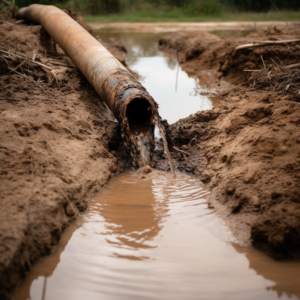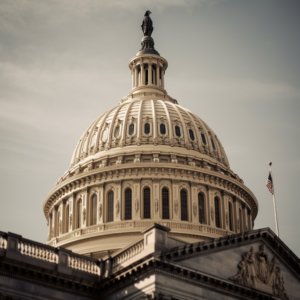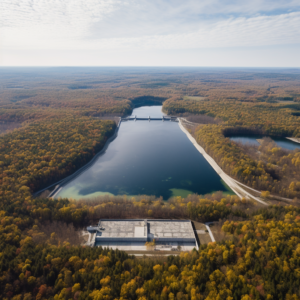The tendency to prioritize short-term profits over our shared environment is a longstanding problem across both the US and the world. Environmental destruction increases our risk of experiencing natural disasters, preventable diseases, and habitat loss. It harms the world we live in, as well as the one we pass down to future generations.
Regulatory bodies and government officials recognize this fact, which is why there have been specific laws put in place to prevent companies from taking advantage of the environment. However, just because those laws were enacted does not mean corporations adhere to them as strictly as they should.
The good news is that individuals who witness environmental fraud have legal recourse and protection for speaking up, thanks to the False Claims Act. There is even a financial incentive for individuals who can report on fraudulent activity that negatively harms the environment. If you believe you have witnessed environmental fraud and you have more questions, learn everything you need to know about how to navigate your claim from one of our whistleblower attorneys.
What is Environmental Fraud?
Environmental fraud describes a whole host of behaviors that skirt legal regulations and harm the natural world. Examples include illegal dumping, water and air pollution, destruction of protected areas and habitats, false certification of compliance with regulatory practices, and more.
Environmental fraud committed by government contractors and similar entities who receive government funding can be prosecuted under the False Claims Act. Under this important act, whistleblowers who witness environmental wrongdoing can report the issue and pursue a qui tam claim on behalf of the government. The federal False Claims Act offers the most protection for whistleblowers, but whistleblowers can also report environmental fraud under separate federal and state environmental regulations to possibly strengthen their claim.
Common Types of Environmental Fraud
There are several ways that a company can commit environmental fraud. One common way is when the government provides contracts or funding for specific environmental projects. If the company misuses those funds, falsifies data for more funding, or commits any other type of wrongdoing under such a contract, it may be prosecuted for committing environmental fraud. Another example is when a company knowingly puts the environment or endangered animals at risk as part of its business model.
Here are a few more common types of environmental fraud:
- Violations of federal environmental laws, including falsified certifications: Any company that receives government funding, whether it be through business loans, contracts, grants, or reimbursements, must properly certify how that money is spent and that the job is accomplished under previously agreed-upon guidelines. Companies that cut corners following environmental regulations and receive any level of government funding may be sued under the False Claims Act for up to treble damages per false certification. Whistleblowers can recover up to 30% of a successful qui tam settlement in these cases.
- Illicit chemical or hazardous waste dumping: The Resource Conservation and Recovery Act (RCRA) gives the EPA authority to manage the generation, transportation, treatment, storage, and disposal of hazardous wastes. If a company fails to follow RCRA guidelines or other EPA regulations, they may open themselves up to a whistleblowing complaint.
- Falsification of data: American history is littered, quite literally, with companies that have attempted to conceal environmental disaster and health risk to citizens in an attempt to protect their own profits. From Flint, Michigan to East Palestine, Ohio, groundwater pollution to industrial waste seepage to catastrophic explosions, many environmental disasters could have been contained or even prevented had companies kept and reported accurate data from the start. Failure to do so may open up a company to a lawsuit under the False Claims Act or other regulatory legislation.
- Breach of contract: Government contractors have additional responsibility to deliver quality work, since they often provide vital social services. If a government contractor fails to deliver on a waste cleanup contract, environmental restoration project, or more, they can be sued for breach of contract by a whistleblower.
- Fraudulent marketing: Many products, especially those certified “green” or “eco-friendly” may seem too good to be true. In many cases, companies engage in “green-washing” in order to try to entice consumers to their products with uncertified or even blatantly false advertising around the environment. This kind of false marketing can be not only a waste of your time and hard-earned money. Many of these products actually cause harm to the environment with their manufacture and use. To report dangerous false advertising, contact our law firm and see what can be done to hold companies accountable.
- Inaccurate invoices or price quotes: Government contractors must report accurate data when bidding for a job, as well as when submitting final invoicing. Failure to do so, especially when estimates and invoices do not account for environmental factors such as proper waste disposal and habitat destruction, can be prosecuted under the False Claims Act.

Warning Signs of Environmental Fraud
Egregious errors and inaccuracies in government contract RFPs, invoices, and reporting may be a warning sign that fraud is taking place. Similarly cutting corners to meet the terms of a government contract for an environmental project or violating environmental regulations while performing work for the government may constitute environmental fraud.
The EPA lists several environmental violations that may constitute fraud if committed by a government contractor. If you spot any of the following and are able to report previously undisclosed information through the proper channels, you may be able to qualify for a whistleblower reward.
- Abandoned containers or drums of waste
- Dead fish or dead animals
- Water that has a strange smell, color, or seems to contain substances like bleach or other chemicals
- Contaminated discharges into waterways
- Suffering plant life
- Visible reflective sheen on the ground or water
- Air emissions, including foul smells, difficulty breathing, or strange looking formations
- Stains around drains, sinks, toilets, or other waterway entries
- Pipes or drains that circumvent wastewater treatment systems
- Building demolition that involves illegal removal of high-risk materials such as asbestos
- Clusters of concentrated health risks, shared symptoms, or diagnoses
- Suspicious activity such as waste disposal at odd hours or in secluded areas
Consequences of Environmental Fraud
Recent UN reports suggest that about one million animal and plant species are threatened by extinction over the next decade. Environmental fraud puts not only their world, but also ours, at risk. Environmental harm shrinks the availability of clean drinking water, safe air, green spaces, and the ultimate survival of multiple species, including our own. According to the EPA, immediate health risks attached to environmental destruction and climate change include increased rates of respiratory ailments, heart disease, certain cancers, West Nile virus and Lyme disease, water and food-born illness, violent crime, and more.
On a financial level, environmental fraud affects the government, the taxpayer, and citizens. When companies misappropriate funds that are meant for protecting the environment and instead seek to increase their profits at our shared expense, they double the harm they otherwise might cause. Those taxpayer funds were earmarked for projects that should have benefited the community, including safe waste cleanup, water management, and more. Instead, the government may find itself short on money for future necessary projects, and with more environmental harm to address than before.
What is the Comprehensive Environmental Response, Compensation, and Liability Act or Superfund Law?
The Department of Energy, as well as other US agencies, store and manage hazardous substances throughout various facilities around the country. The release of hazardous substances from waste sites, facilities, and projects that have been abandoned can have negative health consequences for the environment and local communities. As a result, Congress passed the Comprehensive Environmental Response, Compensation, and Liability Act (CERCLA) to regulate hazardous substances, respond to potential releases, and develop solutions to the problem.
Federal contractors, companies, or other entities that violate the CERCLA may be prosecuted for committing environmental fraud.
Does the False Claims Act Cover Environmental Fraud?
Yes, the False Claims Act covers various types of fraud and other wrongdoings against the federal government, including environmental fraud. While most False Claims Act (FCA) claims are related to other types of fraud like healthcare, defense and security government contracts, and securities fraud, the law allows for environmental fraud claims as well.
In a nutshell, this law holds any entity liable for damages when they have knowingly falsified claims to the government. Even better, the FCA provides specific protections and rewards for individuals who report wrongdoing. Whistleblowers who report environmental fraud could receive as much as 30% of the overall settlement amount reached in a successful case. The whistleblower is also protected from any retaliatory actions by their employer or the company accused of the wrongdoing.
Can the FCA Help Enforce Environmental Regulations?
Reporting violations under the False Claims Act can add firepower to environmental regulation. Companies are obligated to report factual information to the federal government, and are at risk of being held liable for up to treble damages per false report. Because of its tough financial penalties, the FCA can provide a path forward towards recovery where existing environmental laws fall short.
Additionally, the FCA can be used to prosecute federal contractors who are associated with numerous areas of government. FCA liability may involve companies associated with the Environmental Protection Agency, but also with the Department of Defense, Department of Energy, Department of Homeland Security, and more. Additionally, the Federal Acquisition Regulation (FAR) requires that government contracts over $100,000 must contain a “Clean Water and Clean Air Certification.” Bids that fail to incorporate environmental protection in their total cost may be examined under the False Claims Act to ensure compliance.
How Does Environmental Fraud Relate to the EPA?
In addition to prosecution under the FCA for compliance with EPA guidelines, the EPA Office of the Inspector General also offers additional awards for employees who blow the whistle on waste and fraud in the EPA. This EPA whistleblower program offers an extra level of protection to employees who report fraud, as well as an additional route to financial compensation. Under 5 U.S.C. § 4512, the Inspector General of a government agency may pay a monetary award to any agency employee whose disclosure of fraud, waste, or abuse results in a cost savings to the agency.
What is the Office of Environmental Justice?
The Office of Environmental Justice is a recent addition to the Department of Justice. As of 2022, the Office of Environmental Justice (OEJ) is set up to manage the DOJ’s environmental justice projects as well as follow up on environmental fraud whistleblower claims. According to the office’s press release, the OEJ will “serve as the central hub for our efforts to advance our comprehensive environmental justice enforcement strategy” and directly address the “harm caused by environmental crime, pollution, and climate change.”
Largest Environmental Fraud Settlements
Environmental fraud settlements can be significant. Considering that whistleblowers can receive a percentage of the settlement amount (between 15 and 30%), a large settlement equates to a high payout for the whistleblower.
One recent example involves a $1 million settlement from Omega Protein Corp., a leading domestic producer of Omega-3 rich fish oil, fishmeal, and more. A company whistleblower alleged that Omega Protein Corp. falsely certified compliance with the Clean Water Act while illegally discharging harmful quantities of oil pollutants. The company received a $10 million loan from the Department of Commerce while submitting these false certifications. The whistleblower, a former employee, received $200,000 as their share of the settlement.
Summit Midstream Partners LLC and a related pipeline company, Meadowlark Midstream Company LLC, were sentenced for the largest-ever inland oil spill of 29 million gallons of oil-contaminated “produced water”, a byproduct of hydraulic fracturing. This $20 million civil penalty was imposed in addition to a $15 million criminal fine. The companies were found guilty of civil violations of the Clean Water Act and North Dakota water pollution control laws.
Sevenson Environmental Services Inc. settled a False Claim Act lawsuit for $2.72 million in 2014. The environmental remediation firm accepted kickbacks and rigged bids for work performed at the Federal Creosote Superfund Site in New Jersey, causing the EPA to pay more for their services.
Government contractor Lockheed Martin paid $5 million to settle allegations that they violated and misrepresented their compliance with the Resource Conservation and Recovery Act for work performed at the Paducah Gaseous Diffusion Plant.
In 2020, a number of biofuel companies—including E-Biofuels, Caravan Trading, Cima Green—were hit with a $70 million judgement for fraudulently obtaining biodiesel tax credits.

But perhaps the largest settlement to date was for work performed for the Waste Treatment & Immobilization Plant in Hanford. Bechtel National and AECOM paid $125 million to settle allegations of using deficient materials at the nuclear site and illegally used taxpayer dollars to fund a lobbying campaign to obtain more federal funding for the project.
How Do Government Contractors Commit Environmental Fraud?
Government contractors violate the False Claims Act when they commit fraud against the government by:
- Failing to comply with the Clean Water Act or the Clean Air Act
- Using federal funds for personal use or non-approved uses
- Failing to comply with environmental laws that result in financial harm to the government
- Violating environmental laws that contractors have contractually agreed to obey
- Accepting federal funds for goods or services that were not provided
- Engaging in price-fixing schemes when bidding on federal contracts
- Accepting federal funds for expenses paid when another agency covered the expenses
- Providing or accepting kickbacks or other illicit benefits when awarding government funding
- Falsifying records to justify receiving federal aid
- Fraudulently billing the government for environmental fines or penalties
 Holding Federal Contractors Accountable for Environmental Fraud under the False Claims Act
Holding Federal Contractors Accountable for Environmental Fraud under the False Claims Act
Under the False Claims Act, companies, entities, or contractors can be held liable for fraudulent actions against the government. Often, federal contractors are hired by governmental agencies to perform specific tasks. Contractors who work for the following agencies can be reported for fraud:
- Department of Defense
- Department of Energy
- Environmental Protection Agency
- Federal Emergency Management Agency
- U.S. Fish and Wildlife Service
- U.S. Forest Service
- U.S. National Oceanic and Atmospheric Administration
How to Report Environmental Fraud
Once a tip has been previously disclosed, it becomes ineligible for a financial reward in most cases. If you have information about environmental fraud, speak to a qui tam lawyer as soon as possible. Doing so can help you gather the required evidence, prevent future harm, protect you from retaliation, and ensure that you can receive the False Claims Act whistleblower reward.
Your qui tam lawyer can report your claim to the appropriate channels and help enlist government investigators’ aid in following up on your claim. In cases where the EPA or OEJ decline to intervene, your qui tam law firm may be able to prosecute the case regardless, and pursue the highest possible reward percentage.
Who Can Become an Environmental Fraud Whistleblower?
Anyone who witnesses environmental fraud can become a whistleblower, but they must have unique information regarding a violation of an environmental law or regulation. If pursuing a lawsuit under the False Claims Act, the information must involve government funding. Many federal statutes contain a citizen suit provision, so you can pursue a claim even as a private citizen, but some restrictions apply. For instance, if you want to pursue a claim under the Clean Water Act, then you must have been personally impacted by the wrongful action.
If you believe you have witnessed environmental fraud and you are not sure what to do next, consider scheduling a confidential case evaluation with our legal team to learn more about your legal options.
What Evidence is Needed for an Environmental Fraud Whistleblower Claim?
Evidence in an environmental fraud case may take many forms, because of the variety of ways to illustrate environmental harm. In environmental fraud cases, proof may be provided by scientists, forestry professionals, environmental advocates, and more. However, usually the strongest possible whistleblower cases involve disclosures from employees connected to the company accused of committing fraud. Employees who become whistleblowers can provide specific documentation that illustrates causality, and not just connection between the company’s actions and environmental harm. Evidence from employees may look like company emails, procedural documents, directives from management, billing receipts, and more. Even the simplest of company directives may highlight a pattern of waste, fraud, and abuse of the natural world.
The False Claims Act requires that “factual contentions have evidentiary support or, if specifically so identified, will likely have evidentiary support after a reasonable opportunity for further investigation or discovery.” Frivolous claims may be dismissed with the possibility of the whistleblower being ordered to pay thousands in the other side’s legal fees. In order to avoid this outcome, an experienced False Claims Act attorney will be able to advise you on how to build the strongest possible case with the evidence available to you in your position.

What Laws Protect Environmental Whistleblowers?
Several laws protect environmental whistleblowers. Many of these laws and regulations exist is to protect the environment, but whistleblowers need protection, too, in order for them to come forward with evidence of wrongdoing. Without protection, whistleblowers might not feel safe enough to report a known violation.
False Claims Act
The main law that protects environmental whistleblowers is the False Claims Act. False Claims Act whistleblower protection allows a whistleblower to pursue a claim on behalf of the government when an entity or organization is knowingly making false claims to the government. Under this law, whistleblowers are protected from harassment and may be able to sue for reinstatement, double back pay, legal fees, and more in the event of employer retaliation.
Safe Water Drinking Act
The Safe Water Drinking Act was originally enacted to ensure that water sources reserved for drinking contain clean, safe, and healthy water. This Act prohibits anyone from using dangerous materials, like lead piping, to hold and transport water. It also regulates pollution to ensure that water sources do not get contaminated.
This law also protects any public or private employee who reports violations of the Act to the government.
Federal Water Pollution Control Act
This Act was originally passed in 1972 as an amendment to the Safe Water Drinking Act. This amended law quickly became the primary federal law used to protect the nation from water pollution. As part of this Act, any government, industrial, or agricultural entity must receive a permit to discharge anything into surface water. This Act protects employees or authorized representatives of an employee who have witnessed a violation of this law.
Clean Air Act
The Clean Air Act seeks to regulate air pollution from many sources and requires polluters to obtain a permit from the federal or state government before discharging certain pollutants. Whistleblowers who notice a violation are protected from retaliation when they report it.
Energy Reorganization Act
The Energy Reorganization Act, which was passed in 1974, split the responsibility for developing and producing nuclear weapons between the Energy Research and Development Administration and the U.S. Atomic Energy Commission. An amendment to the law was later passed to help protect whistleblowers with nuclear safety concerns.
Solid Waste Disposal Act
This Act seeks to protect and improve waste disposal technology throughout the US. The Act sets out a framework for states to control waste, as well as specific safety requirements for landfills. Whistleblowers who notice a violation should report it.
Toxic Substances Control Act
This Act gives the Environmental Protection Agency the authority to regulate, record, and restrict chemical substances and mixtures. The Act addresses how entities can produce, import, use, and dispose of specific chemicals.
Comprehensive Environmental Response, Compensation, and Liability Act
As mentioned above, the CERCLA, which is also often referred to as Superfund or a federal Superfund, helps protect the environment from hazardous waste.
When Are Environmental Whistleblowers Entitled to a Reward?
Environmental whistleblowers may be entitled to a reward when they report a wrongful action and are able to provide unique evidence of the alleged fraud. If their False Claims Act claim is later successful and a settlement is reached, the whistleblower whose information helped secure the settlement is entitled to a portion thereof. Other laws and regulatory bodies might fine violators or prosecute them but do not usually offer any type of reward for whistleblowers.
Here are a few examples of fraudulent behavior for which a False Claims Act whistleblower can receive a significant financial reward from a successful lawsuit:
- Overcharging the government for environmental clean-up projects
- Violations of securities laws in the form of misrepresentations by financial advisors or funds regarding ESG strategies
- Violations of securities laws by securities issuers who misrepresent material risks stemming from climate change, sustainability issues, or environmental issues
- Underpayment of taxes using fraudulent tax credits aimed at conservation and renewable energy efforts
- Avoidance of environmental fines through falsification of data
- Environmental contract fraud via false representation of compliance by government contractors, or failure to adhere to contractual requirements or environmental regulations
- Underpayment of government royalties by misrepresenting the amount of natural resources extracted from public land
- Violations of the Endangered Species Act and wildlife protection laws
- Violations of the Act to Prevent Pollution on Ships
- Violations of the Clean Air Act
What Rewards Are Available for Environmental Fraud Whistleblowers?
Under the civil False Claims Act, environmental fraud whistleblowers may be able to collect anywhere from 15 to 30% of a successful settlement. This amount includes both fines and fees assessed against the company who has been found liable, as well as misappropriated funds that have been recovered through the lawsuit. Because the False Claims Act assesses treble damages, awards may number into the thousands or millions.
Have You Witnessed Environmental Fraud? Speak to an Experienced Qui Tam Attorney
Do you believe you have witnessed environmental fraud? Reporting the wrongdoing is not only the right thing to do, but it is more than worth the effort. Blowing the whistle can address current environmental harm, prevent future pollution and theft of public funds, and earn yourself a percentage of the total recovery.
So, how do you move forward? Whistleblowing can be an intimidating process, but with help from an experienced qui tam attorney who can inform you about your legal options and rights it does not have to be. Before you take any action against your organization or report the wrongdoing, talk to a qualified qui tam lawyer first.

